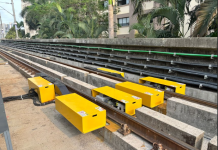Gender-based violence continues to be far too prevalent in our society with 1 in 3 women and girls experiencing physical or sexual violence in their lifetime. With the devastating effects of COVID-19 all around the world, women and those in marginalized communities are even more at risk.
Ive seen firsthand the reverberating effects of gender-based violence on communities during my time working on federal gender and diversity initiatives in Canada. From my experience, the most effective way to make a difference is working together in a comprehensive, sustained way across government, business and the non-profit sectors to prevent, educate, and innovate.
Uber has taken its commitment to improve safety in our industry and in our communities seriously. We continue to work with experts in safety and gender-based violence to refine our policies and processes so that we are a more survivor-centric company. We have pioneered a host of safety technology solutions that drivers and riders can tap into when using Uber. And we have led the way in safety transparency by making our safety record public through our first-of-its-kind US Safety Report.
Last year, during the height of the pandemic, we partnered with domestic violence organizations and local governments around the world to provide more than 50,000 free rides to shelters and safe spaces, and more than 45,000 free meals.
This year to mark the UNs 16 Days of Activism against Gender-Based Violence, our teams around the globe are continuing to develop partnerships and initiatives geared toward doing our part to help end gender-based violence in the communities we serve:
Australia & New Zealand
- Expanded Driving Change initiative and partnerships to help women secure employment opportunities, further support the transgender community and dismantle the culture of street harassment with organizations including Australia Says NO MORE, RespectEd Aotearoa, and TOAH-NNEST.
- Continuing the WESNET Rides Program which gives practical support to women as they rebuild their lives; from facilitating travel to or from shelters, to relocating families and enabling women to avoid their perpetrators.
Canada
- Deepened and expanded partnerships with YWCA Canada, WomanACT, EVA BC and Le Chaînon to support survivors of domestic and gender-based violence through initiatives related to training, community building, safe housing and counseling.
France
- Launching a broad awareness campaign on gender-based violence and discrimination with riders as well as the wider general population in France.
- Deploying mandatory video education for all active drivers developed with the help of NGO HandsAway in France.
India
- Continuing and expanding Gender Sensitization Education in partnership with the Manas Foundation to meet our goal of reaching 100,000 drivers by the end of 2021.
- Partnered with NGO Breakthrough India for its first-ever research report on bystander behaviour and its role in making public spaces safer for Indian women.
Latin America
- Launching public educational videos and content developed by MeToo Brazil and ACTO in Mexico to riders and drivers about gender-based violence. Educational podcasts created by Efecto Boomerang in El Salvador and with GenderLab in Peru, Ecuador and Bolivia are also being deployed.
- Providing free rides for survivors of domestic violence and workers in Argentina, Brazil, and Mexico in partnership with the Ministry of Women, Genders and Diversity of Argentina, Avon Institute, Mujeres 2000, and the National Shelter Network.
- Developed enhanced training for customer support agents in Brazil in partnership with MeToo.
- Partnering with Igarapé Institute in Brazil, Colombia and Mexico to maintain and update a platform with data about violence against women: EVA.
- Working with Fondo Semillas to support women-led organizations in Mexico including community soccer tournaments for survivors of gender-based violence.
- Worked with MeToo Brazil to offer support services and counseling for survivors of gender based violence.
- Supported a victimization survey on violence against women conducted by the Brazilian Public Security Forum and a survey on womens safety and commuting in cities with Patrícia Galvão Institute, Locomotiva Institute and UN Women consulting.
Middle East
- Partnering with the KASHF Foundation in Pakistan, RES in Egypt, HarassMap International in the UAE, Qatar, Jordan, Bahrain and Lebanon, and Al Nahda in Saudi Arabia to develop and deploy education to riders and drivers about gender-based violence prevention.
South Africa
- Expanding womens empowerment and safety education in partnership with UNFPA and deploying to riders and drivers.
United Kingdom
- Deploying sexual misconduct education to drivers and riders using the Uber platform.
- Launching a Womens Safety social campaign that amplifies organisations helping make movement safer for women, while raising awareness of Ubers safety features that help keep women safe on the platform.
- Partnering with domestic abuse charity Hestia to cover trips to their refuges, in support of their Fresh Start Toolkit, which brings businesses together to provide potentially lifesaving support to victims. Also working with Home Safe to cover trips for those that need it.
United States
- Provided free rides to domestic violence shelters and safe spaces for survivors of gender-based violence as part of Ubers Driving Change Program.
- Developed a fund with that National Center for Transgender Equality for the trans community to help cover costs associated with updating names and gender on state and federal IDs and records.
- Launched the Industry Sharing Safety Program with Lyft to share account information related to drivers deactivated for serious safety incidents with peers.
To learn more, you can visit uber.com/safety/womens-safety.




